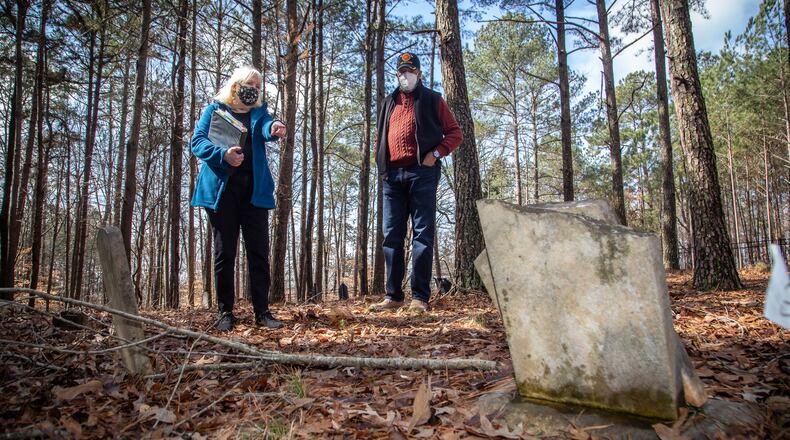Johns Creek might form a nonprofit that would provide guidance in the restoration and preservation of a cemetery where former enslaved people and their relatives are buried.
Macedonia African Methodist Church Cemetery is a nearly two-acre site located a few yards from Medlock Bridge Road and on top of a hill.
Assistant City Manager Kimberly Greer proposed the nonprofit idea during a City Council work session on Monday. The nonprofit would have a board of advisors with expertise on similar historic properties and help engage members of the public who want to weigh-in on improvements at the cemetery.
The city is also planning to create a website page devoted to Macedonia and activities on the property.
The cemetery has been in disrepair. Johns Creek set aside $100,000 for improvements in its fiscal year 2022 budget. A portion of those funds, $7,200, was used to hire a consultant to draft a strategic plan.
The consultant’s 16-page report described the site conditions and offered suggestions for improvements, but council members said it lacked a plan on how to move forward.
City Council will discuss the creation of a nonprofit during a meeting in the spring, Johns Creek spokesman Bob Mullen said on Tuesday.
The cemetery land was originally owned by George Morgan Waters, who owned at least 100 slaves, according to the Johns Creek Historical Society.
The oldest marked grave is dated 1893. Joan Compton, co-founder of the historical society has said there are at least 110 unmarked graves at the cemetery.
Records show that in 1905 the land was sold to Black residents for the site of Macedonia African Methodist Church. The building structure is no longer there.
Johns Creek acquired the property in 2021 through eminent domain for $52,000. The property owner was unknown when the city first entered into those proceedings a year earlier.
Mullen said officials discovered the last land owner was Macedonia African Methodist Church. City staff was unable to find any person or group affiliated with the former church, he added.
The funds first went to Fulton County Superior Court and were to be forwarded to the state, officials have said.
About the Author
The Latest
Featured


